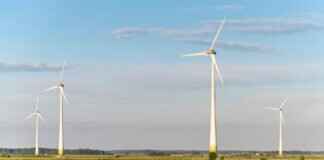This article explores the evolving landscape of Indian American political participation in New York, examining key challenges, opportunities, and strategies for enhancing engagement and representation within the political sphere.
Understanding the Current Political Landscape
The Indian American community in New York represents a significant demographic, with over 300,000 individuals contributing to the state’s cultural and economic fabric. Despite this, political representation remains disproportionately low. Recent voting patterns indicate a growing trend toward civic engagement, yet many still face hurdles in understanding the intricacies of the electoral process. With a focus on local and state government representation, it is crucial to analyze how demographic shifts influence political dynamics and what this means for future participation.
Historical Context of Indian American Political Engagement
Historically, Indian Americans have faced various challenges in political engagement, from the early struggles for civil rights to the recent rise in representation. Key milestones, such as the election of the first Indian American mayor in a major U.S. city, have paved the way for increased visibility in politics. However, the journey has not been without obstacles, including systemic barriers and cultural disconnection from mainstream political processes.
Barriers to Political Participation
Several barriers hinder Indian Americans from engaging in the political process. Language barriers and cultural differences can create significant obstacles, particularly for first-generation immigrants. Additionally, a lack of awareness about the electoral system and available resources often leads to disengagement. Addressing these challenges is essential for fostering a more inclusive political environment.
The Importance of Representation
Representation is vital for any community, and for Indian Americans, it means having elected officials who understand their unique challenges. When Indian Americans are represented in government, policies that address specific needs—such as immigration reform, healthcare access, and education—are more likely to be prioritized. This representation not only empowers the community but also enhances the democratic process.
Mobilizing the Community: Strategies for Engagement
To enhance political participation, effective strategies must be employed. Grassroots organizing can play a pivotal role in mobilizing community members. Initiatives like community outreach programs, workshops, and leveraging social media platforms can significantly increase awareness and engagement. By creating a sense of community and shared purpose, Indian Americans can become more active participants in the political landscape.
The Role of Education in Political Awareness
Education is a powerful tool for fostering political awareness. Civic education programs that target younger generations can instill a sense of responsibility and engagement from an early age. Schools, community organizations, and local governments should collaborate to create initiatives that promote understanding of the political process and encourage participation among youth.
Leveraging Technology for Political Participation
In today’s digital age, technology can enhance political engagement among Indian Americans. Online voter registration, digital campaigns, and virtual town halls provide accessible platforms for community members to engage with political issues. Utilizing technology not only streamlines the participation process but also reaches a broader audience, especially younger voters who are more inclined to engage online.
Building Alliances with Other Communities
Building coalitions with other minority groups can amplify the voices of Indian Americans in New York. Collaborating with organizations representing various communities can lead to more significant influence on policy changes that benefit all marginalized groups. These alliances help create a unified front, making it easier to address common challenges and advocate for shared interests.
Engagement in Local Elections
Local elections are critical for shaping community interests and priorities. Encouraging Indian Americans to participate actively in these elections can lead to more representative governance. Initiatives that highlight the importance of local voting, such as community forums and candidate meet-and-greets, can increase turnout and engagement.
Advocating for Policy Changes
Advocacy is essential for addressing the specific needs of the Indian American community. By organizing campaigns that focus on critical issues such as healthcare, education, and immigration reform, community members can influence policy changes that directly impact their lives. Engaging with local representatives and participating in advocacy groups can empower individuals to voice their concerns and drive meaningful change.
Success Stories: Indian American Leaders in Politics
Highlighting successful Indian American politicians can inspire future generations to pursue careers in public service. By showcasing their contributions and the challenges they overcame, these leaders serve as role models for young individuals considering political engagement. Their stories can motivate community members to become involved and advocate for their interests.
Future Trends in Political Participation
As demographics continue to shift, the future of Indian American political participation in New York looks promising. Increased visibility and engagement are likely to lead to greater representation in government. Understanding these trends can help community leaders develop strategies that ensure sustained involvement and influence in the political arena.
Conclusion: Path Forward for Indian American Engagement
Enhancing political participation among Indian Americans in New York requires a multifaceted approach that addresses barriers, promotes education, and fosters community engagement. By implementing effective strategies and advocating for representation, the Indian American community can shape its political future and ensure that its voices are heard.

Understanding the Current Political Landscape
The political landscape for Indian Americans in New York is evolving rapidly, shaped by demographic shifts, changing voting patterns, and increasing representation in local and state government. This article delves into these dynamics, highlighting the significance of understanding the current environment to foster greater political engagement among the Indian American community.
As of recent estimates, Indian Americans represent one of the fastest-growing ethnic groups in New York. The community is diverse, comprising individuals from various regions of India, each bringing distinct cultural backgrounds and experiences. According to the U.S. Census Bureau, Indian Americans account for approximately 2.5% of New York’s population, a figure that is expected to rise in the coming years.
In recent elections, Indian Americans have demonstrated a notable shift in voting patterns. Historically, this demographic has leaned towards the Democratic Party, influenced by issues such as immigration reform, healthcare, and education. However, there has been a growing segment of the community that is becoming more politically active and vocal about their needs, leading to increased participation in elections. For instance, voter turnout among Indian Americans surged during the last presidential election, with many young voters engaging through social media platforms and community initiatives.
The representation of Indian Americans in local and state government has seen significant improvements over the past decade. More individuals from this community are stepping into political roles, holding positions such as city council members, state assembly representatives, and even congressional seats. Notable figures include Congresswoman Pramila Jayapal and New York State Assembly member Jenifer Rajkumar, who have become influential voices for their communities, advocating for policies that address the unique challenges faced by Indian Americans.
Despite these advancements, challenges remain. Many Indian Americans still face barriers to political participation due to factors such as language differences, cultural misunderstandings, and a lack of awareness about the electoral process. Additionally, the community often grapples with the need for greater visibility and representation in mainstream politics, where their voices can influence policy decisions that directly affect their lives.
To navigate these challenges, there are numerous opportunities for Indian Americans to enhance their political engagement. Grassroots organizations are emerging to educate the community about the electoral process, encouraging participation in local elections and advocating for policy changes that resonate with their needs. Furthermore, leveraging technology and social media has proven effective in mobilizing younger voters, fostering a sense of community, and addressing issues pertinent to Indian Americans.
In conclusion, understanding the current political dynamics affecting Indian Americans in New York is crucial for fostering greater engagement and representation. By recognizing the demographic trends, voting patterns, and the importance of representation in government, the community can work towards overcoming challenges and seizing opportunities for political participation.

Historical Context of Indian American Political Engagement
The historical context of Indian American political engagement is a rich tapestry woven with significant milestones and formidable challenges. This narrative spans decades, illustrating the journey of Indian Americans from relative obscurity to becoming influential players in the political landscape of the United States.
Initially, Indian Americans faced substantial hurdles in the political arena. The early 20th century saw a limited presence of Indians in American politics, primarily due to restrictive immigration laws and racial discrimination. However, the mid-20th century marked a turning point. The Immigration and Nationality Act of 1965 opened doors for many, allowing a new wave of Indian immigrants to settle in the U.S. This influx brought with it a surge in political awareness and activism.
Significant Milestones:
- The First Indian American Elected Official: In 1962, Dalip Singh Saund became the first Indian American elected to the U.S. Congress, representing California’s 29th district. His election was a historic achievement, paving the way for future generations.
- The Emergence of Community Organizations: The 1970s and 1980s saw the formation of various organizations aimed at promoting political engagement among Indian Americans, such as the Indian American Forum for Political Education (IAFPE).
- Increased Representation: The late 1990s and early 2000s witnessed a significant increase in Indian American politicians, with figures like Kamala Harris and Nikki Haley rising to prominence, showcasing the community’s growing influence.
Despite these milestones, challenges persisted. Language barriers, cultural differences, and a lack of understanding of the electoral process often hindered participation. Many Indian Americans felt disconnected from the political system, viewing it as inaccessible or unrepresentative of their interests.
Challenges Faced:
- Cultural Assimilation: The struggle to balance cultural identity with assimilation into American society often left Indian Americans feeling marginalized in political discussions.
- Voter Turnout: Historically, voter turnout among Indian Americans has been lower than that of other demographic groups, highlighting the need for targeted outreach and education.
In recent years, however, there has been a marked shift. The rise of social media and digital platforms has empowered Indian Americans to organize and mobilize effectively. Grassroots movements and community-led initiatives are now more commonplace, fostering a sense of unity and purpose among Indian Americans.
The increasing visibility of Indian American leaders in politics serves as inspiration for younger generations. As the community continues to grow and diversify, its political engagement is likely to evolve, reflecting the changing dynamics of American society.
In summary, the historical context of Indian American political engagement reveals a journey marked by significant milestones and persistent challenges. As the community moves forward, understanding this history is crucial for fostering greater political participation and representation.

Barriers to Political Participation
The political landscape for Indian Americans in New York is vibrant yet fraught with challenges. Understanding the barriers that hinder political participation is crucial for fostering a more engaged and representative community. This section delves into the key obstacles, including language barriers, cultural differences, and a lack of awareness about the electoral system.
- Language Barriers: One of the most significant hurdles faced by Indian Americans is the language barrier. Many individuals from the community may not be fluent in English, which can lead to difficulties in understanding political discourse, campaign materials, and voting instructions. This lack of proficiency can discourage participation and limit access to vital information regarding candidates and policies.
- Cultural Differences: Cultural nuances play a pivotal role in political engagement. Indian Americans often come from backgrounds where political participation is not emphasized. Traditional values may prioritize community harmony and discourage confrontation, making it challenging for individuals to voice their opinions or engage in political debates. Understanding these cultural contexts is essential for developing strategies that resonate with the community.
- Lack of Awareness about the Electoral System: Many Indian Americans may not fully understand how the electoral system works in the United States. This lack of knowledge can stem from insufficient civic education or limited exposure to the political process. Without a clear understanding of how to register to vote, the significance of local elections, and the role of elected officials, individuals may feel disempowered and disengaged.
Addressing these barriers requires a multifaceted approach. Community organizations can play a vital role by providing language assistance, offering cultural competency training, and conducting educational workshops on the electoral process. By fostering an environment that encourages participation and engagement, Indian Americans can overcome these challenges and make their voices heard in the political arena.
Furthermore, collaboration with local schools and universities can enhance civic education, ensuring that younger generations are equipped with the knowledge and skills necessary for active political engagement. This proactive approach can help bridge the gap between the community and the political system, ultimately leading to increased representation and advocacy for issues that matter to Indian Americans.
In conclusion, identifying and addressing the barriers to political participation is essential for empowering the Indian American community in New York. By recognizing the impact of language, culture, and awareness, stakeholders can develop effective strategies to enhance engagement and representation, paving the way for a more inclusive political landscape.

The Importance of Representation
Representation is a crucial aspect of any democratic society, and it holds particular significance for the Indian American community. The presence of elected officials who understand the unique challenges faced by this demographic can lead to more informed policy decisions and a greater sense of belonging within the political landscape. This section delves into the reasons why representation matters, emphasizing its impact on both the community and the broader political framework.
Firstly, having representatives who resonate with the experiences of the Indian American community ensures that their specific needs and concerns are acknowledged and addressed. Elected officials who share similar backgrounds or have a profound understanding of the community’s cultural nuances are better equipped to advocate for policies that directly affect their constituents. For instance, issues such as immigration reform, healthcare access, and education can be approached with a level of empathy and insight that might be lacking in representatives from different backgrounds.
Moreover, representation fosters a sense of trust and engagement within the community. When individuals see their own people in positions of power, it encourages them to participate more actively in the political process. This increased engagement can lead to higher voter turnout and a stronger voice in local and national issues. It is essential for the Indian American community to feel that their perspectives are valued, and having relatable representatives can significantly enhance this sentiment.
Additionally, representation plays a vital role in combating stereotypes and misconceptions about the Indian American community. Elected officials who are part of this demographic can challenge prevailing narratives and promote a more nuanced understanding of their culture and contributions to society. This can help in reducing discrimination and fostering a more inclusive environment for all.
Furthermore, the absence of representation can lead to policies that overlook or even harm the interests of the Indian American community. Without individuals in power who understand their unique challenges, critical issues may remain unaddressed. For example, the community has faced challenges related to economic disparities and access to education, which can be better tackled with informed advocacy from elected officials who are attuned to these realities.
In conclusion, the importance of representation for the Indian American community cannot be overstated. It is essential for ensuring that their voices are heard and their needs are met. As the community continues to grow and evolve, it is vital to support and elect leaders who truly understand and can effectively advocate for their interests. This not only benefits the Indian American community but also enriches the political landscape as a whole, creating a more representative and democratic society.

Mobilizing the Community: Strategies for Engagement
In recent years, the Indian American community has witnessed a surge in political awareness and participation. However, to truly mobilize this vibrant demographic for political engagement, effective strategies must be employed. This section delves into various approaches that can enhance political participation among Indian Americans, focusing on grassroots organizing, community outreach, and the strategic use of social media.
- Grassroots Organizing: Grassroots organizing serves as a powerful tool to mobilize communities. Local organizations can play a pivotal role in identifying issues that resonate with Indian Americans, such as immigration policies, education, and healthcare. By forming community groups that focus on these issues, individuals can be empowered to take action, whether it’s participating in town halls, attending rallies, or engaging with local representatives.
- Community Outreach: Effective community outreach initiatives are essential for raising awareness and fostering political engagement. Organizing informational workshops, town hall meetings, and cultural events can bridge the gap between political processes and the community. These events provide platforms for discussions on civic responsibilities, the electoral process, and the importance of voting, thus encouraging informed participation.
- Leveraging Social Media: In today’s digital age, social media platforms are vital for mobilizing communities. Utilizing platforms like Facebook, Twitter, and Instagram can help disseminate information quickly and effectively. Campaigns that highlight key issues, share success stories, and provide updates on local events can engage younger generations who are more inclined to use these platforms. Additionally, creating dedicated online groups can foster discussions and encourage collective action.
Moreover, collaborations with local organizations and other minority communities can amplify the message. By forming coalitions, the Indian American community can strengthen its voice in the political arena, advocating for policies that benefit not just their demographic but also the broader society.
To further enhance engagement, initiatives that focus on civic education are crucial. Programs that educate individuals about their rights, the voting process, and how to advocate for their needs can empower the community and increase participation rates. Schools and universities can also play a significant role by incorporating civic education into their curricula, ensuring that younger generations understand the importance of their political involvement.
Lastly, tracking the effectiveness of these strategies is essential. Community leaders should regularly assess participation rates and gather feedback to refine their approaches. By staying adaptable and responsive to the community’s needs, the Indian American demographic can continue to grow its political influence and ensure that its voices are heard in the political landscape.

The Role of Education in Political Awareness
Education plays a critical role in shaping political awareness among Indian Americans, particularly in the context of civic engagement and participation in democratic processes. As the Indian American community continues to grow in size and influence, it is essential to understand how education can serve as a catalyst for political involvement.
One of the most effective ways to foster political awareness is through civic education programs. These programs aim to equip individuals with the knowledge and skills necessary to engage in the political process effectively. They often cover topics such as understanding the electoral system, the importance of voting, and the roles of various government institutions. By participating in these programs, younger generations can gain a better understanding of their rights and responsibilities as citizens, which can lead to increased political participation.
In recent years, several initiatives have emerged specifically targeting Indian American youth. For instance, organizations like South Asian Americans Leading Together (SAALT) and Indian American Impact have developed resources and workshops designed to educate young people about the political landscape. These initiatives not only provide information but also create a supportive environment where youth can discuss their concerns and experiences related to politics.
Moreover, schools and universities play a pivotal role in promoting political awareness. Incorporating civics education into the curriculum can help students understand the significance of their participation in democracy. Schools can organize debates, mock elections, and community service projects that encourage students to become more involved in local issues. Such hands-on experiences can inspire a sense of responsibility and empower students to take action.
Another important aspect of education is the role of family and community engagement. Parents and community leaders can significantly influence young people’s political awareness by discussing current events and encouraging participation in community meetings or local elections. By creating a culture of political discussion at home and in the community, families can instill the value of civic engagement in the next generation.
Furthermore, leveraging technology can enhance educational efforts. Online platforms and social media can be powerful tools for disseminating information about political issues and events. By utilizing these platforms, organizations can reach a wider audience and engage young people in discussions about politics. Virtual town halls and webinars can also provide opportunities for direct interaction with elected officials and community leaders, making the political process more accessible.
In conclusion, the role of education in fostering political awareness among Indian Americans cannot be overstated. Through civic education programs, school initiatives, family engagement, and the use of technology, the community can empower its youth to become informed and active participants in the democratic process. As political engagement continues to evolve, it is crucial to prioritize education as a means of enhancing awareness and participation within the Indian American community.

Leveraging Technology for Political Participation
In today’s digital age, technology plays a pivotal role in enhancing political engagement, particularly among communities like Indian Americans. As the demographic landscape evolves, so does the need for innovative approaches to encourage participation in the political process. This section delves into how technology can be harnessed to foster greater political involvement among Indian Americans, focusing on three key areas: digital campaigns, online voter registration, and virtual town halls.
Digital Campaigns: Reaching the Unreachable
Digital campaigns have revolutionized the way political messages are disseminated. For Indian Americans, who often juggle multiple responsibilities, digital platforms offer an accessible means to engage with political issues. Campaigns that utilize social media, targeted advertisements, and engaging video content can effectively reach younger voters and those who may not be inclined to participate in traditional political processes. By creating content that resonates with the cultural and social values of the Indian American community, candidates can foster a sense of belonging and urgency to participate in elections.
Online Voter Registration: Simplifying the Process
One of the significant barriers to political participation is the complexity of voter registration. Online voter registration simplifies this process, making it easier for Indian Americans to register and vote. Many states now offer this service, allowing voters to complete their registration from the comfort of their homes. Moreover, targeted campaigns that educate the community about the importance of voter registration and provide step-by-step guidance can significantly increase participation rates. By leveraging technology, organizations can send reminders and updates via text messages or social media, ensuring that the community stays informed and engaged.
Virtual Town Halls: Bridging the Gap
Virtual town halls have emerged as a powerful tool for political engagement. They allow constituents to interact directly with their elected officials without geographical constraints. For Indian Americans, who may reside in different parts of the country, virtual town halls provide an opportunity to voice concerns, ask questions, and engage in meaningful dialogue with policymakers. This format not only encourages participation but also fosters a sense of community and collective action. By promoting these events through social media and community networks, organizers can ensure higher turnout and engagement.
The Role of Technology in Fostering Inclusivity
Technology also plays a crucial role in fostering inclusivity within the political process. By providing multilingual resources and accessible platforms, technology can help overcome language barriers that often hinder participation among non-English speaking Indian Americans. Additionally, using data analytics, campaigns can identify and reach out to underrepresented groups within the community, ensuring that their voices are heard and represented.
In conclusion, leveraging technology for political participation among Indian Americans is not just a necessity but a strategic imperative. By embracing digital campaigns, simplifying voter registration, and facilitating virtual town halls, the political landscape can become more inclusive and representative. As technology continues to evolve, so too must the strategies employed to engage communities in the democratic process. This approach not only empowers Indian Americans but also enriches the broader political discourse, leading to a more vibrant and representative democracy in New York and beyond.

Building Alliances with Other Communities
In today’s increasingly interconnected society, the importance of building coalitions with other minority groups cannot be overstated. For the Indian American community in New York, forging alliances with diverse populations is not just a strategic move; it is an essential pathway to amplify voices and influence meaningful policy changes that benefit a broader spectrum of New Yorkers.
Coalitions enable minority groups to unite around common goals, leveraging their collective strength to advocate for policies that address shared challenges. For instance, issues such as immigration reform, healthcare access, and educational equity resonate across various communities. By aligning with other minority groups, Indian Americans can create a more formidable presence in the political landscape, ensuring that their concerns are heard and addressed.
One of the most effective ways to build these alliances is through community engagement initiatives. Organizing joint events, such as town halls or cultural festivals, can foster understanding and solidarity. These events not only raise awareness about the unique challenges faced by each community but also highlight the interconnectedness of their struggles. For example, a joint forum focusing on healthcare disparities can bring together Indian Americans, African Americans, and Latino communities, creating a platform for shared experiences and collaborative solutions.
Moreover, collaborative advocacy can significantly enhance the impact of policy proposals. When multiple groups present a united front, policymakers are more likely to take notice. This collective approach can lead to more comprehensive legislation that addresses the multifaceted nature of issues affecting minority populations. For instance, a coalition advocating for improved public transportation could highlight how inadequate services disproportionately affect low-income communities, thereby garnering broader support.
Additionally, technology plays a crucial role in facilitating these alliances. Social media platforms can serve as powerful tools for outreach and mobilization. By utilizing these platforms, minority groups can share resources, coordinate campaigns, and amplify their messages to a wider audience. This digital engagement can also foster connections among younger generations, ensuring that the spirit of collaboration continues to thrive.
In conclusion, the significance of building alliances with other minority groups is paramount for the Indian American community in New York. By coming together, these communities can amplify their voices, influence policy changes, and work towards a more equitable society. Through strategic partnerships, community engagement, and the effective use of technology, Indian Americans can not only enhance their political participation but also contribute to a broader movement for social justice and equality.

Engagement in Local Elections
Local elections serve as a fundamental pillar of democracy, particularly for communities like Indian Americans, who are increasingly finding their voice in the political arena. These elections are not just about choosing representatives; they are about shaping the very fabric of local governance and ensuring that community interests are prioritized. The significance of local elections cannot be overstated, as they provide an avenue for Indian Americans to engage in the political process, advocate for their needs, and influence policy decisions that affect their daily lives.
One of the primary reasons local elections are crucial is the direct impact they have on community issues such as education, public safety, and infrastructure. When Indian Americans participate in these elections, they help elect officials who are more likely to understand and address the unique challenges faced by their community. For instance, local representatives can advocate for bilingual education programs or community health initiatives that resonate with Indian American families, ensuring that their voices are heard in discussions that matter most to them.
However, despite the importance of local elections, many Indian Americans remain underrepresented in the electoral process. This underrepresentation can be attributed to several factors, including a lack of awareness about the electoral system, cultural differences, and language barriers. To combat these challenges, community organizations play a vital role in educating voters about the electoral process, encouraging them to register, and facilitating access to polling places.
Moreover, grassroots initiatives can significantly enhance participation rates among Indian Americans. Organizing community forums, informational sessions, and leveraging social media platforms can mobilize voters and foster a sense of community engagement. For example, local organizations can host events that not only educate voters about candidates and issues but also provide a platform for candidates to connect with the Indian American community directly.
Another essential aspect of engagement in local elections is the power of collaboration. Indian Americans can build alliances with other minority communities to amplify their collective voice. By working together, these groups can advocate for shared interests and push for policies that benefit a broader spectrum of the population. Collaborative efforts can lead to increased voter turnout, as individuals feel part of a larger movement advocating for change.
Furthermore, technology plays a transformative role in enhancing political engagement. Digital campaigns, online voter registration, and virtual town halls can make it easier for Indian Americans to participate in local elections. These tools can provide timely information about candidates and issues, making it more accessible for voters to make informed decisions. For instance, community leaders can utilize social media platforms to share important updates regarding local elections, increasing awareness and encouraging participation.
In conclusion, the engagement of Indian Americans in local elections is critical for ensuring that their voices are heard and their interests are represented. By overcoming barriers to participation, leveraging technology, and fostering community collaboration, Indian Americans can significantly impact local governance. As they continue to engage in these pivotal voting opportunities, they not only shape their own futures but also contribute to the democratic process that upholds the values of representation and inclusivity.

Advocating for Policy Changes
As the Indian American community continues to grow in New York, it is essential to recognize the importance of advocating for policies that address their unique needs. This advocacy is not just about voicing concerns; it is about actively shaping policies that impact critical areas such as healthcare, education, and immigration reform. By understanding these key issues, community members can mobilize effectively to influence decision-makers.
Healthcare Advocacy
Healthcare is a pressing concern for many Indian Americans, particularly with the rising costs of medical services and the complexities of insurance coverage. Advocating for policies that ensure affordable healthcare access is vital. This includes pushing for reforms that expand Medicaid eligibility, improve healthcare literacy, and enhance language access services in medical settings. Community organizations can play a crucial role by conducting awareness campaigns that educate individuals about their rights and available resources.
Education Initiatives
Education is another critical area where advocacy can make a significant impact. Indian Americans often emphasize the value of education, yet disparities in access and quality remain. Advocating for policies that promote equitable funding for schools, support for STEM education, and programs that assist English language learners can help bridge these gaps. Engaging with local school boards and participating in educational forums can amplify community voices and push for necessary reforms.
Immigration Reform
Immigration reform is a central issue for many Indian Americans, particularly those facing challenges with visa processes and pathways to citizenship. Advocating for comprehensive immigration reform that addresses these challenges is essential. This advocacy can take various forms, including lobbying for legislation that streamlines visa applications and provides protections for undocumented immigrants. Collaborating with immigrant rights organizations can strengthen these efforts and create a unified front for change.
Strategies for Effective Advocacy
- Community Mobilization: Organizing community meetings to discuss specific issues and develop collective strategies for advocacy.
- Grassroots Campaigns: Utilizing social media platforms to raise awareness and mobilize support for policy changes.
- Building Coalitions: Partnering with other minority groups to create a stronger voice and influence broader policy discussions.
Conclusion
In conclusion, advocating for policy changes is crucial for the Indian American community in New York. By focusing on healthcare, education, and immigration reform, community members can work collaboratively to influence policies that directly affect their lives. Active participation in advocacy efforts not only empowers individuals but also strengthens the community as a whole, ensuring that their voices are heard and their needs are met.

Success Stories: Indian American Leaders in Politics
The narrative of Indian American political leaders is a testament to the resilience and determination of a community that has made significant strides in the political arena. Over the past few decades, Indian Americans have transitioned from being a largely invisible demographic in politics to holding influential positions at various levels of government. This section highlights some of the most notable figures and their contributions, serving as a source of inspiration for future generations.
- Kamala Harris: As the first female Vice President of the United States and the first person of South Asian descent to hold this office, Kamala Harris has broken numerous barriers. Her journey from a district attorney in San Francisco to the U.S. Senate exemplifies the power of perseverance and dedication. Harris focuses on issues such as criminal justice reform, healthcare, and immigration, advocating for policies that resonate with many marginalized communities.
- Pramila Jayapal: A member of the U.S. House of Representatives, Pramila Jayapal has been a vocal advocate for progressive policies, including Medicare for All and immigration reform. As the first Indian American woman elected to Congress, she has used her platform to amplify the voices of the underrepresented, emphasizing the importance of inclusive governance.
- Raja Krishnamoorthi: Serving Illinois’s 8th congressional district, Raja Krishnamoorthi has made significant contributions in areas such as education and economic development. His background as a successful entrepreneur and small business advocate informs his legislative priorities, aiming to foster innovation and support for local businesses.
- Sheila Kuehl: As a member of the Los Angeles County Board of Supervisors, Sheila Kuehl has championed social justice issues, including homelessness and environmental sustainability. Her extensive career in public service and advocacy showcases the impact of local governance on community well-being.
The contributions of these leaders extend beyond their immediate communities; they serve as role models for young Indian Americans aspiring to enter politics. Their stories illustrate that political engagement is not just a possibility but a pathway to effecting real change. The visibility of Indian American politicians also encourages increased participation within the community, fostering a sense of belonging and empowerment.
Moreover, these leaders often emphasize the importance of mentorship and community involvement. Initiatives aimed at educating young people about the political process and encouraging civic engagement are crucial for nurturing the next generation of leaders. Programs that connect aspiring politicians with established leaders can provide invaluable support and guidance, ensuring that the legacy of Indian American political participation continues to grow.
In conclusion, the success stories of Indian American politicians are not just individual achievements; they represent a collective journey toward greater representation and advocacy within the political landscape. By showcasing these leaders and their contributions, we can inspire future generations to pursue careers in politics, ensuring that the voices of Indian Americans are heard and valued in the halls of power.

Future Trends in Political Participation
The political participation of Indian Americans in New York is on the cusp of transformation, driven by a combination of demographic shifts and evolving political landscapes. As the Indian American community continues to grow in size and influence, understanding these trends is essential for fostering greater engagement in the political arena.
- Demographic Shifts: The Indian American population in New York is becoming increasingly diverse, with younger generations emerging who are more politically aware and active. This shift is significant as it brings fresh perspectives and priorities that differ from previous generations. The rise of second and third-generation Indian Americans, who are more integrated into American society, is likely to lead to increased political participation.
- Changing Political Landscapes: The political environment in New York is also evolving. With the rise of progressive movements and a growing emphasis on social justice issues, Indian Americans may find more alignment with political platforms that resonate with their values. This alignment could motivate greater participation in elections and advocacy efforts.
- Increased Representation: As Indian Americans gain representation in local and state governments, their influence will grow. Elected officials from the community can advocate for policies that address the unique challenges faced by Indian Americans, thereby encouraging more individuals to engage in the political process.
- Community Organizing: There is a noticeable trend towards grassroots organizing within the Indian American community. Organizations focused on political engagement are increasingly mobilizing community members through events, workshops, and social media campaigns. This grassroots approach is vital in building a politically active community.
- Focus on Local Issues: Future political participation will likely center around local issues that directly impact the Indian American community. As residents become more aware of how local policies affect their lives, there will be a stronger push for involvement in local elections, town halls, and community meetings.
- Utilization of Technology: The digital landscape is playing a crucial role in enhancing political participation. Social media platforms and online forums are becoming vital tools for mobilization, allowing Indian Americans to share information, organize events, and connect with like-minded individuals. This digital engagement can lead to increased voter turnout and community involvement.
The future of political participation among Indian Americans in New York is not just about numbers; it is about the **quality of engagement** and the **depth of influence** that this community can exert on the political landscape. As barriers are broken down and awareness increases, we can expect to see a more vibrant and active Indian American political presence in the years to come.
In conclusion, the trends indicate a promising future for Indian American political participation in New York. By leveraging demographic changes, fostering community engagement, and utilizing technology, the Indian American community can significantly enhance its role in shaping the political landscape. The journey towards greater political involvement is ongoing, and with the right strategies in place, the potential for impactful participation is immense.

Conclusion: Path Forward for Indian American Engagement
As we reflect on the evolving landscape of political participation among the Indian American community in New York, it becomes clear that there are several key areas that require attention and action. To enhance political engagement, it is essential to summarize the critical points discussed throughout this exploration and outline actionable steps that can be taken to foster a more politically active community.
- Increase Awareness: One of the primary barriers to political participation is a lack of awareness about the electoral process. Community organizations should prioritize educational workshops that inform Indian Americans about voting rights, local governance, and how to engage with elected officials.
- Encourage Youth Engagement: The younger generation holds the key to future political participation. Initiatives such as mentorship programs that connect young Indian Americans with political leaders can inspire them to become more involved in civic activities.
- Utilize Social Media: Leveraging platforms like Facebook, Twitter, and Instagram can significantly enhance outreach efforts. Creating engaging content that resonates with the community can motivate individuals to participate in political discussions and events.
- Build Coalitions: Forming alliances with other minority communities can amplify voices and create a united front on critical issues. Collaborating on community events and advocacy efforts can strengthen relationships and foster a sense of solidarity.
- Advocate for Representation: It is vital for Indian Americans to support candidates who understand and prioritize the community’s unique challenges. This can be achieved through active campaigning, fundraising, and mobilizing voters during elections.
In addition to these actionable steps, it is crucial to recognize the importance of representation in all levels of government. Having elected officials who reflect the community’s demographics ensures that the voices of Indian Americans are heard and that their interests are adequately represented in policy-making.
Furthermore, technology should be embraced as a tool for enhancing political participation. Online voter registration, virtual town halls, and digital campaigns can make it easier for community members to engage with the political process, especially for those who may face mobility or accessibility challenges.
Ultimately, the path forward for Indian American political engagement in New York hinges on a collective effort to address barriers, educate the community, and mobilize resources effectively. By taking these steps, the Indian American community can significantly enhance its political presence and influence in New York, ensuring that its members are not only heard but also actively shaping the political landscape.
Frequently Asked Questions
- What are the main barriers to Indian American political participation in New York?
Indian Americans often face several obstacles, including language barriers, cultural differences, and a general lack of awareness about the electoral process. These factors can discourage individuals from engaging in political activities or understanding their rights and responsibilities as voters.
- Why is representation important for the Indian American community?
Representation matters greatly because elected officials who understand the unique challenges faced by Indian Americans can advocate for policies that directly benefit the community. Having leaders who share similar backgrounds can lead to more inclusive decision-making and better address the specific needs of this demographic.
- How can technology enhance political engagement among Indian Americans?
Technology plays a crucial role in increasing political engagement. Digital campaigns, online voter registration, and virtual town halls make it easier for Indian Americans to participate in the political process. These tools can help spread awareness, mobilize voters, and create a more connected community.
- What strategies can be employed to mobilize the Indian American community?
Effective strategies include grassroots organizing, community outreach programs, and leveraging social media platforms. By creating awareness and encouraging discussions around political issues, these strategies can significantly enhance community engagement and participation.
- Who are some notable Indian American politicians?
There are several successful Indian American politicians, such as Kamala Harris and Nikki Haley, who have made significant contributions to politics. Their achievements serve as inspiration for younger generations to pursue careers in public service and leadership.














